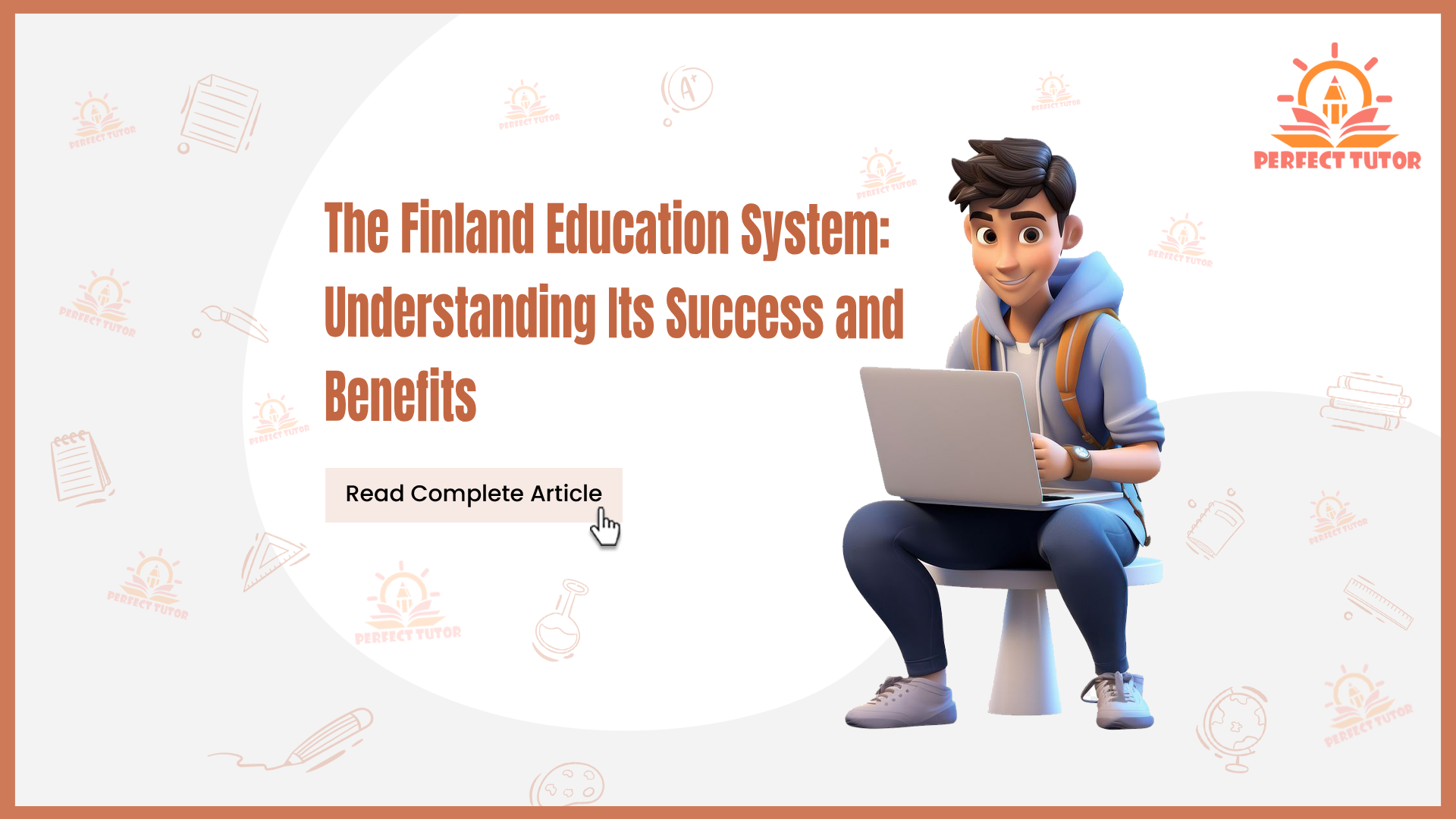The Finland Education System: Understanding Its Success and Benefits
Finland's education system is considered one of the best in the world. It consistently ranks highly in global education comparisons due to its focus on equality, quality and student welfare.
This blog will provide detailed information about Finland’s education system, including how it works, its unique features, and the factors that contribute to its success.
If you are a student thinking about studying in Finland, or a teacher considering different ways to teach, or just interested in learning about education, this blog will explain why Finland's education system is so respected.
You will also learn about the role of the Ministry of Education in Finland and the country's influential education rankings.
The Structure of Finland’s Education System
Finland's education system is based on the principles of inclusiveness, personalized learning, and lifelong learning. The system has several levels, each designed to meet the growing needs of students.
1. Early Childhood Education
In Finland, early childhood education is free and available to all children before school age. This stage is crucial for children to develop social, emotional and cognitive skills. Activities such as playtime, outdoor exercise and creative work are an important part of early education, laying the foundation for more formal schooling.
2. Comprehensive Education
Comprehensive education is compulsory in Finland from the age of seven. This level includes nine grades, and all children are required to attend it. Teachers at this level have at least a master's degree, ensuring that students receive high-quality education from well-trained professionals.
3. Upper Secondary Education
After comprehensive school, students can choose between upper secondary education or vocational training. Upper secondary schools provide general education similar to high schools in other countries, while vocational schools focus on practical job skills. Both options are free for students.
Why Finland's Education System is Considered the Best
One of the key factors that makes Finland’s education system rank so highly is its focus on equality. Every student has access to the same quality education, regardless of background or socio-economic status. Here are some reasons why Finland stands out:
1. No Standardized Testing
Finland is different from many other countries because it does not use national standardized tests. This means that students do not have to take many tests, allowing them to focus on learning and understanding rather than memorizing facts. The only required exam is the matriculation exam, which students take at the end of their upper-secondary education.
2. Trust in Teachers
The Finnish system trusts teachers to develop their students. Teachers have a lot of freedom in how they teach, and the Ministry of Education in Finland supports this by providing resources rather than micromanagement. This trust creates a more comfortable classroom where students feel valued and focus on their studies.
3. Learning Focused on Students
Students are encouraged to take responsibility for their own learning. This helps them develop important skills such as critical thinking and problem-solving, which they will need in life after school. The curriculum is flexible, allowing for different ways of learning, and students can explore topics of interest to them.
Finland’s Global Education Ranking
Finland has been listed as one of the best countries for education in a global report. The Finland education ranking shows how dedicated the country is to providing quality, equitable, and innovative education. Here are some of the major factors that contributed to Finland's high ranking:
Teacher Training: All teachers in Finland must have a master's degree, and teacher education is highly selective. This ensures that only the most qualified individuals are guiding students.
Equality in Education: Finland aims to provide equal opportunities to all students, regardless of their background. This inclusive approach has contributed significantly to the country's high ranking.
Focus on Well-being: The well-being of students is a priority in Finland. Schools are designed as supportive environments where students can grow both academically and personally.
The Role of the Ministry of Education in Finland
The Ministry of Education in Finland plays an important role in shaping the country's education policies. It is responsible for setting educational goals, allocating resources, and ensuring that schools provide high-quality education.
The ministry gives schools and local areas a lot of freedom to adjust education to the needs of their community. This flexible system makes it easier for education to change and evolve with society and new technology.
Read This Also - The Best One-on-One Online Tutoring Website in 2025
The Importance of Lifelong Learning in Finland
A unique aspect of education in Finland is the focus on lifelong learning. Education does not stop after formal schooling; it continues into adulthood. Many adults in Finland go back to school to learn new skills or change careers.
The government provides support through free or affordable adult education programs, ensuring that education is accessible to everyone at any stage of life.
How Finland Supports International Students
Finland is not only an excellent place to study for its citizens, but it also offers world-class education to international students. Finland's universities offer over 500 programs in English, making it an attractive destination for students from all over the world.
Additionally, tuition fees in Finland are relatively affordable compared to other higher-level education systems, and scholarship opportunities are also available.
Finland's Higher Education System
There are two types of higher education institutions in Finland: universities and universities of applied sciences. The first approach focuses on scientific research, while the second approach is more practice-oriented, preparing students for specific careers. Both types of institutions are highly respected and degrees from Finnish universities are recognised worldwide.
Universities: These institutions focus on academic research and offer bachelor's, master's, and doctoral degrees.
Universities of Applied Sciences: These schools focus on practical skills and are closely linked to industries, making them ideal for students who want to enter the workforce quickly.
Why Finland's Education System is a Global Model
Finland's education system is considered a great example for other countries. Its success comes from its focus on equality, well-trained teachers, and a curriculum that prioritizes students' well-being. Finland is known for its high rankings in education, but it also offers an inclusive, flexible, and creative way of learning. This approach helps ensure that all students, whether they are from Finland or other countries, receive the best possible education.
Conclusion
Finland's education system is a shining example of how education can be high-quality and inclusive. With a focus on lifelong learning, personalised education, and equality for all, it’s no surprise that Finland’s education system consistently ranks among the highest in the world. Whether you are a student seeking a high-quality education, a parent looking for the best options for your child, or a teacher looking for new ideas, Finland offers important lessons about what a good education system should look like.



 +91 8700847275
+91 8700847275
 +1 8009616567
+1 8009616567